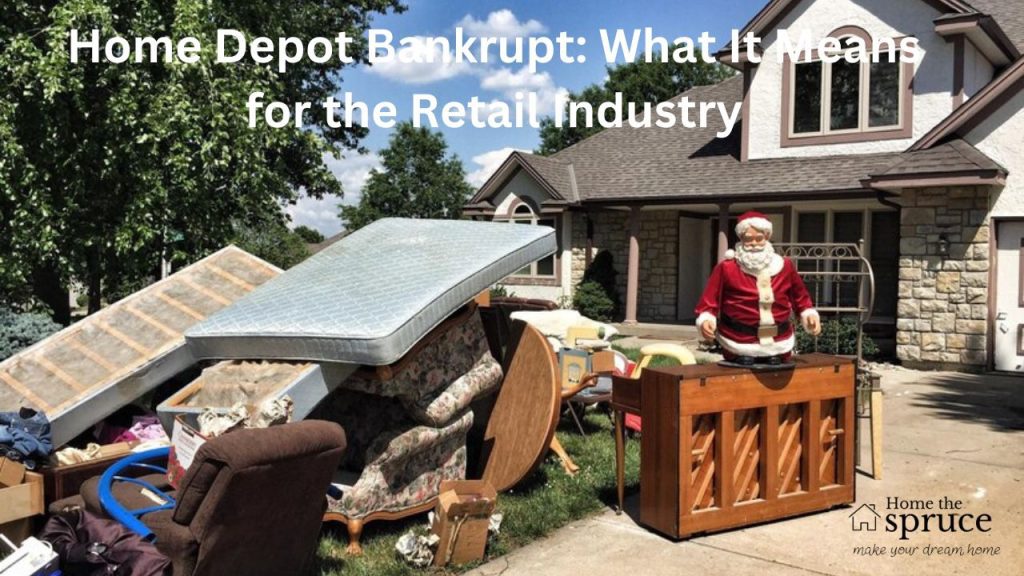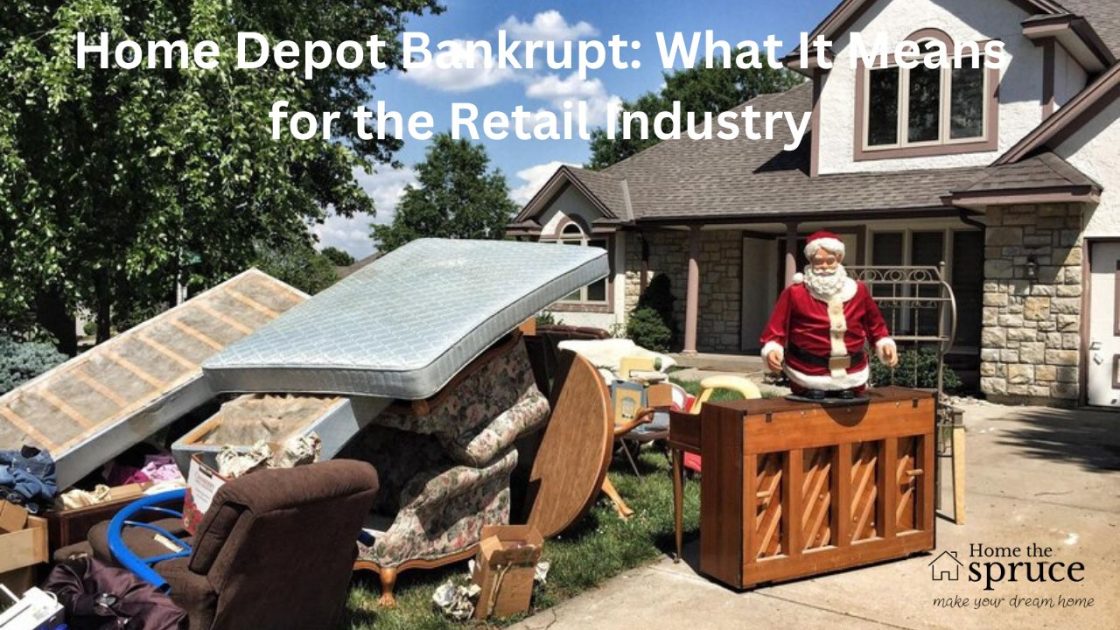When you think of home improvement, Home Depot is one of the first names that comes to mind. But what if the giant in orange aprons faced financial turmoil? What would happen if we heard the words Home Depot bankrupt splashed across headlines? Let’s unpack this potential scenario, explore the causes and effects, and understand what it could mean for shoppers, employees, and the retail world as a whole.

The Rise and Fall of a Retail Challenger
Home Depot has long stood as the kingpin of the home improvement sector. Founded in 1978, the company revolutionized DIY shopping by introducing massive warehouses filled with everything from power tools to patio furniture. It catered to homeowners, builders, and everyone in between. Over time, Home Depot’s success stretched across the globe, with thousands of stores bringing in billions of dollars in revenue.
Yet, no empire is immune to challenges. The idea of Home Depot going bankrupt may seem far-fetched, but even the strongest businesses can face unexpected pitfalls. Changing consumer behavior, fierce competition, supply chain disruptions, and economic slowdowns can all create cracks in a seemingly unshakable foundation.
Financial Troubles Mount
Imagining Home Depot filing for bankruptcy starts with financial warning signs. Companies don’t go bankrupt overnight – it happens in stages. Home improvement giants like Home Depot operate in a highly competitive market with constant pressures on pricing and margins. If sales drop or expenses soar, even a company of Home Depot’s stature can feel the squeeze.
Other factors that could lead to a “Home Depot bankrupt” moment might include:
- Decreasing Consumer Spending: A tough economy often makes customers cut back on non-essential purchases, which can harm Home Depot’s sales.
- Competition: Rival retailers, like Lowe’s and online stores such as Amazon, nibble away at market share.
- Debt Burden: If debt levels grow too high, repayment becomes challenging, putting further strain on operations.
- Supply Chain Woes: A lingering issue since the COVID-19 pandemic, these disruptions can increase costs and delay shipments.
Would Home Depot’s faithful base be enough to keep it afloat, or would cracks in these areas accelerate its financial troubles?
The Chapter 11 Filing
If things worsened to the point that Home Depot filed for Chapter 11 bankruptcy, it would become a safety net to help the company regroup. Chapter 11 allows businesses to restructure under court supervision while continuing to run operations. Customers might not immediately notice changes because stores can remain open during the process.
However, the words “Home Depot bankrupt” would certainly spark anxiety. Employees would question their job security. Customers might wonder if their favorite DIY store would disappear altogether. Competitors might seize the opportunity to grab market share.
But businesses can survive bankruptcy and even come out stronger. Chapter 11 isn’t the end – it’s a chance to start fresh.
The Road Ahead
If Home Depot successfully navigates its way out of bankruptcy, downsizing and restructuring might lead to some noticeable changes:
- Store Closures: Some lower-performing locations could close.
- Product Adjustments: We might see fewer product offerings or re-prioritized shelving space for high-demand items.
- Debt Repayment Plans: This could take years for the company to stabilize financially.
- Customer Incentives: Home Depot might introduce promotions or loyalty perks to regain trust.
Rebuilding after bankruptcy requires tough decisions, but it’s not impossible. Shoppers would likely continue seeing the familiar orange logo, just redesigned for a leaner Home Depot.
Implications for the Industry
A Home Depot bankrupt scenario wouldn’t just impact the company – it would ripple across the entire home improvement landscape. For competitors, it might look like an opportunity to grow their market share. Smaller, regional hardware stores could benefit, too, by attracting customers looking for alternatives.
On the flip side, suppliers who rely on Home Depot to carry their products may face challenges if stores close or reduce inventory orders. Brands like Ryobi, DeWalt, and others heavily tied to Home Depot could feel the squeeze. You might hear questions like, “What happens to Ryobi if Home Depot goes bankrupt?” The tools would likely find homes in other retailers, but the transition could be rocky.
For employees, the uncertainty could lead to job losses or reduced hours. Customers may also experience short-term disruptions in services or empty shelves.
Overall, the retail industry would closely watch Home Depot, as its struggles could signal larger trends within the economy or the DIY sector.
FAQ
Now, let’s tackle some burning questions about bankruptcy and how it could affect a company like Home Depot.
1. What is Chapter 11 bankruptcy?
Chapter 11 bankruptcy is a legal process that allows businesses to reorganize their debts and operations under court supervision while continuing to run. It’s a strategy to recover from financial hardships without completely shutting down.
2. Why did the company file for Chapter 11 bankruptcy?
If Home Depot went bankrupt, likely causes could include declining sales, rising debt, fierce competition, or operational inefficiencies. Economic pressures such as inflation or supply chain delays might also play a significant role.
3. Will the company close all its stores?
Not necessarily! Filing for Chapter 11 doesn’t always mean shutting down completely. Stores might remain open while the company restructures, though some lower-performing locations could close.
4. How will this bankruptcy affect employees?
Bankruptcy might lead to job losses, reduced hours, or changes in benefits for employees. However, Home Depot’s management would likely aim to retain as many employees as possible to maintain operations.
5. What does this mean for customers?
Customers may see temporary disruptions, such as delayed inventory or fewer product options. But loyalty programs and competitive pricing might offer incentives to keep shoppers coming back.
6. Can the company recover from bankruptcy?
Yes! Plenty of companies have bounced back stronger after bankruptcy. By trimming unnecessary expenses, renegotiating debts, and refocusing their business models, Home Depot could emerge revamped and ready to thrive.
Final Thoughts
The idea of Home Depot going bankrupt stirs many questions and emotions. While the possibility may seem dramatic, even the largest retailers aren’t immune to economic pressures and missteps. That said, a Home Depot bankrupt scenario wouldn’t automatically spell its demise. With smart planning, loyal customers, and operational tweaks, the company could overcome adversity and carry on as a staple in the home improvement market.
For now, Home Depot remains a force to reckon with. But the lessons from potential challenges remind us all that no business, no matter how mighty, is invincible.















